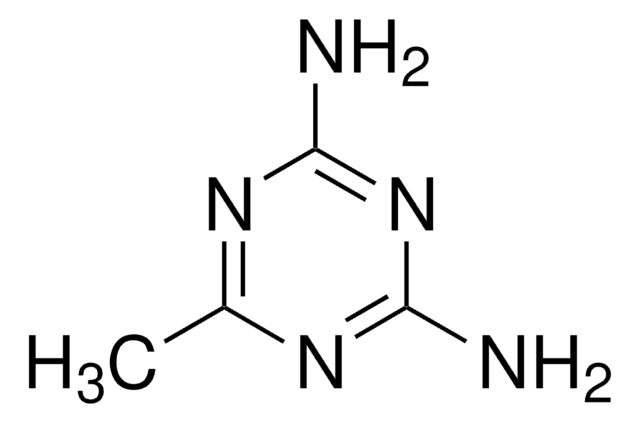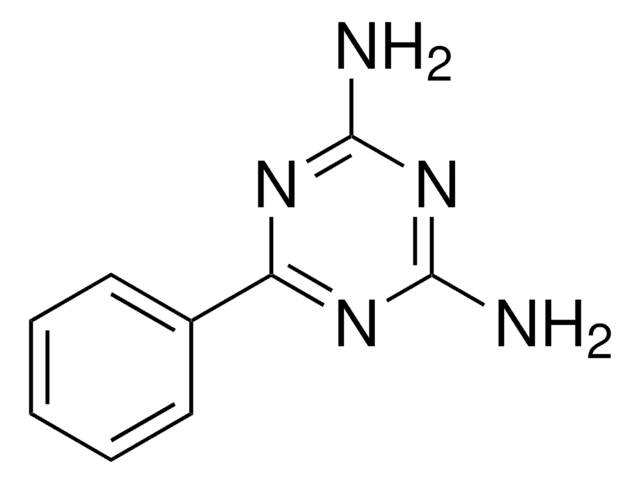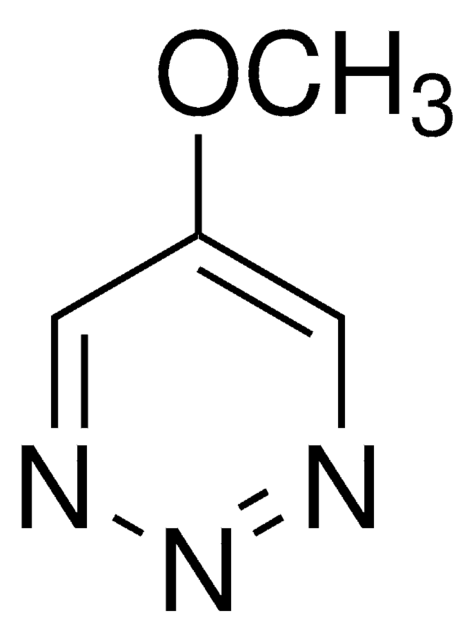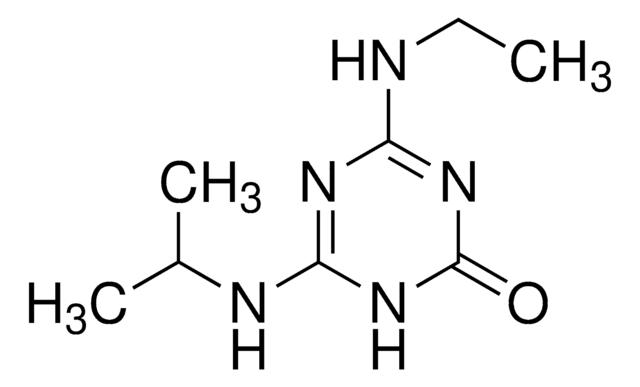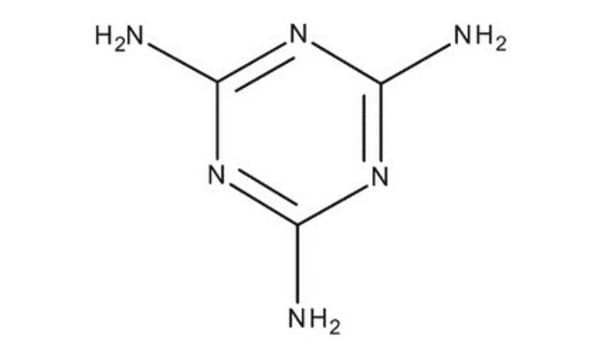C33301
2-Chloro-4,6-diamino-1,3,5-triazine
95%
Synonym(s):
6-Chloro-2,4-diamino-1,3,5-triazine, Desethyl-desisopropyl-atrazine
Sign Into View Organizational & Contract Pricing
All Photos(1)
About This Item
Empirical Formula (Hill Notation):
C3H4ClN5
CAS Number:
Molecular Weight:
145.55
EC Number:
MDL number:
UNSPSC Code:
12352100
PubChem Substance ID:
NACRES:
NA.22
Recommended Products
Quality Level
Assay
95%
form
powder
mp
>320 °C (lit.)
SMILES string
Nc1nc(N)nc(Cl)n1
InChI
1S/C3H4ClN5/c4-1-7-2(5)9-3(6)8-1/h(H4,5,6,7,8,9)
InChI key
FVFVNNKYKYZTJU-UHFFFAOYSA-N
Gene Information
mouse ... Esr1(13982)
Storage Class Code
11 - Combustible Solids
WGK
WGK 3
Flash Point(F)
Not applicable
Flash Point(C)
Not applicable
Personal Protective Equipment
dust mask type N95 (US), Eyeshields, Gloves
Choose from one of the most recent versions:
Already Own This Product?
Find documentation for the products that you have recently purchased in the Document Library.
Customers Also Viewed
Joseane M Pozzebon et al.
Journal of chromatography. A, 987(1-2), 375-380 (2003-03-05)
A method was developed to determine simazine, atrazine and their metabolite, 2-chloro-4,6-diamino-1,3,5-triazine, in urine. The presence of these herbicides in urine may reflect possible exposure to pesticides. Sample preparation involved protein precipitation and solid-phase extraction. The samples were analyzed by
Jennifer L Seffernick et al.
Applied and environmental microbiology, 68(9), 4672-4675 (2002-08-30)
2-Chloro-4,6-diamino-s-triazine (CAAT) is a metabolite of atrazine biodegradation in soils. Atrazine chlorohydrolase (AtzA) catalyzes the dechlorination of atrazine but is unreactive with CAAT. In this study, melamine deaminase (TriA), which is 98% identical to AtzA, catalyzed deamination of CAAT to
Greg P Dooley et al.
Chemical research in toxicology, 19(5), 692-700 (2006-05-16)
Atrazine (2-chloro-4-[ethylamino]-6-[isopropylamino]-1,3,5-triazine) is one of the most commonly used herbicides in North America and is frequently detected in ground and surface waters. This research investigated possible covalent modifications of hemoglobin following in vivo exposures to atrazine in Sprague Dawley (SD)
C Ernst et al.
Applied microbiology and biotechnology, 42(5), 763-768 (1995-01-01)
A bacterium utilizing 2-chloro-4,6-diamino-s-triazine (CAAT) as sole nitrogen source was isolated under a N2-free atmosphere and identified as Klebsiella pneumoniae. Concomitant to CAAT degradation the protein content increased and chloride was released into the medium. Under air and a N2-atmosphere
Susan C Laws et al.
Toxicological sciences : an official journal of the Society of Toxicology, 76(1), 190-200 (2003-09-13)
We showed previously that the chlorotriazine herbicide, atrazine (ATR), delays the onset of pubertal development in female rats. ATR and its biotransformation by-products are present in soil and groundwater. Since current maximum contaminant levels are set only for ATR, it
Our team of scientists has experience in all areas of research including Life Science, Material Science, Chemical Synthesis, Chromatography, Analytical and many others.
Contact Technical Service


